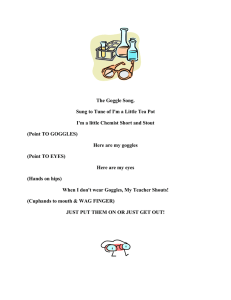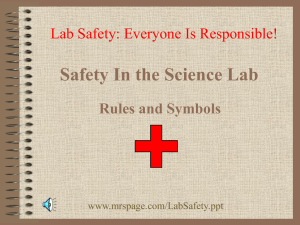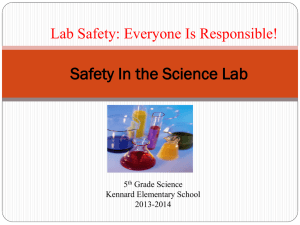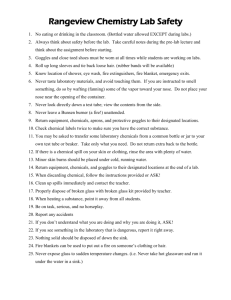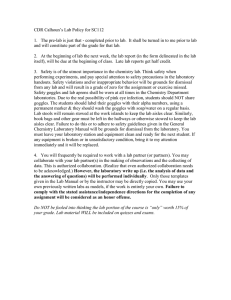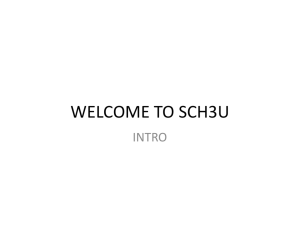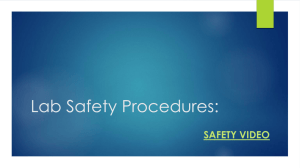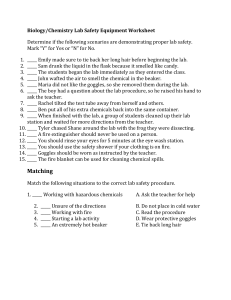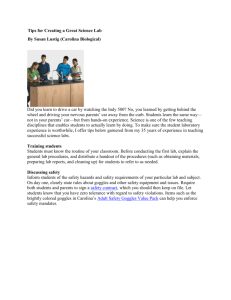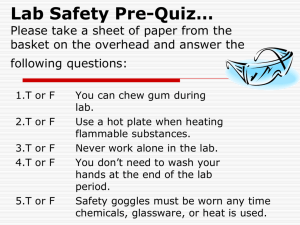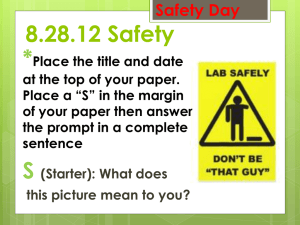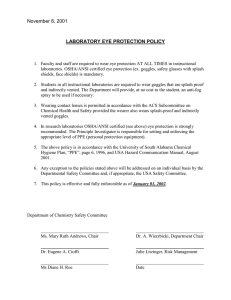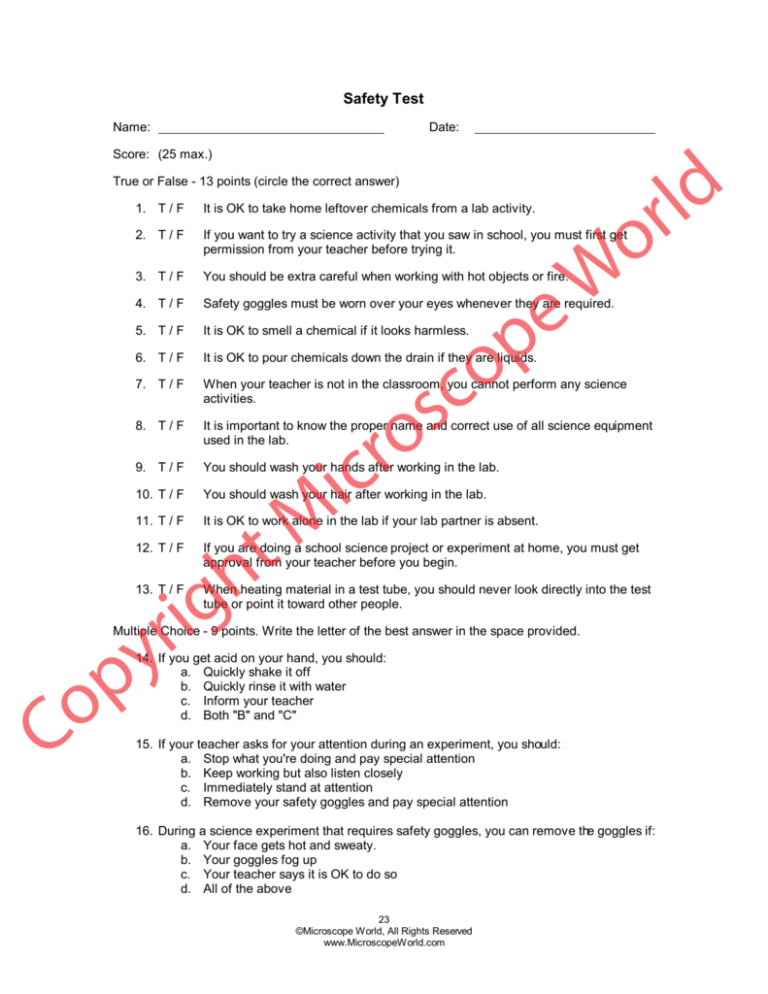
Safety Test
Name:
Date:
lr d
Score: (25 max.)
True or False - 13 points (circle the correct answer)
o
W
e
1. T / F
It is OK to take home leftover chemicals from a lab activity.
2. T / F
If you want to try a science activity that you saw in school, you must first get
permission from your teacher before trying it.
3. T / F
You should be extra careful when working with hot objects or fire.
4. T / F
Safety goggles must be worn over your eyes whenever they are required.
5. T / F
It is OK to smell a chemical if it looks harmless.
6. T / F
It is OK to pour chemicals down the drain if they are liquids.
7. T / F
When your teacher is not in the classroom, you cannot perform any science
activities.
8. T / F
It is important to know the proper name and correct use of all science equipment
used in the lab.
9. T / F
You should wash your hands after working in the lab.
p
o
c
s
M
t
h
g
10. T / F
11. T / F
12. T / F
i
r
y
p
o
C
13. T / F
o
r
ic
You should wash your hair after working in the lab.
It is OK to work alone in the lab if your lab partner is absent.
If you are doing a school science project or experiment at home, you must get
approval from your teacher before you begin.
When heating material in a test tube, you should never look directly into the test
tube or point it toward other people.
Multiple Choice - 9 points. Write the letter of the best answer in the space provided.
14. If you get acid on your hand, you should:
a. Quickly shake it off
b. Quickly rinse it with water
c. Inform your teacher
d. Both "B" and "C"
15. If your teacher asks for your attention during an experiment, you should:
a. Stop what you're doing and pay special attention
b. Keep working but also listen closely
c. Immediately stand at attention
d. Remove your safety goggles and pay special attention
16. During a science experiment that requires safety goggles, you can remove the goggles if:
a. Your face gets hot and sweaty.
b. Your goggles fog up
c. Your teacher says it is OK to do so
d. All of the above
23
©Microscope World, All Rights Reserved
www.MicroscopeWorld.com
17. The proper way to smell an unknown chemical is to:
a. Use an odorimeter
b. Carefully place your nose at the edge of the container and sniff lightly
c. Dip your finger into the container then smell the liquid on your finger
d. Hold the container about an arm's length away and wave your hand across the
top, cautiously sniffing from a distance
18. If you have an accident, you should:
a. Try to clean it up
b. Notify the teacher immediately
c. Tell your lab partner
d. Call 911
19. If some chemical gets into your eye, you should:
a. 8link repeatedly to shake the chemical out
b. Turn your head down with your eyes open so it falls out
c. Run as quickly as possible to the nurse's office
d. Quickly rinse your open eyes with running water and immediately notify your
teacher
20. When performing a science experiment, you should:
a. Never work alone
b. Read and follow all directions very carefully
c. Double check all measurements
d. All of the above
21. When performing any other science activity, you should:
a. Not worry about safety if chemicals are not being used
b. Listen carefully to your teacher and follow all special safety rules that are stated
c. Follow all safety rules listed in the activity handout sheet
d. Both B and C
22. The science lab is a place:
a. To have fun and do whatever you want to
b. Where you must be extra careful and be prepared for the unexpected
c. Where most safety rules must be strictly followed
d. Both B and C
23. Write the first three safety rules that were on your list of science safety rules (any order is
ok, 3 points).
1.
2.
3.
24
©Microscope World, All Rights Reserved
www.MicroscopeWorld.com

